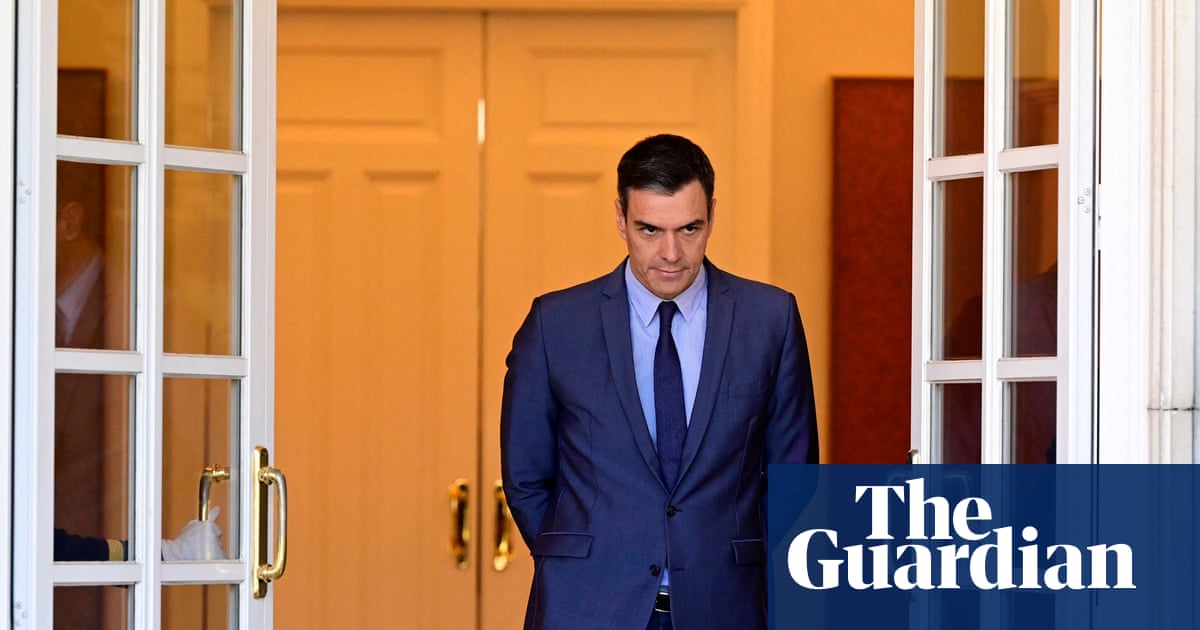
After a short and sharp 10-day campaign, voters in Vanuatu will on Thursday cast their ballots in a snap election to determine its 52-seat parliament.
The Vanuatu Electoral Commission, normally staffed by just eight full-time officers, has been working around the clock to ensure the smooth running of a ballot with a record number of candidates.
The Royal Australian Air Force has worked with the electoral office to deliver ballots. “It is a little bit difficult in Vanuatu,” the electoral office chairman, Edward Kaltamat, told the Guardian. “We have a lot of islands and not many roads.”
Contract staff and technical support offered by Australia and New Zealand have helped swell the ranks of election workers. “In some places polling may start later in the day, and they will have to stay open longer, but we are not thinking there will be any real delay,” Kaltamat said.
The first ballots were sent over the weekend on a commercial flight to Noumea, alongside two officials. More than 1,000 ni-Vanuatu citizens living in New Caledonia are registered to vote.
On Monday, the RAAF transported ballot papers to Malekula, Vanuatu’s second-largest island, and on to Tanna in the south. Police and local authorities were on hand to take custody.
A major logistical operation was put in train to transport more ballot papers overland by vehicle and by small boats to coastal villages.
Celine Bareus, 32, is contesting the election on her home island of Malekula as a first-time candidate. In the past week, long lines of men and women have formed in villages across Malekula, taking their turn to speak to her and listen to her calls for a new face for Vanuatu’s politics.
Bareus, a former public servant who runs her own technology company, knows her biggest hurdles to winning a seat are her age and her gender. In Vanuatu’s short 42-year history of independence, only five women have ever been elected to parliament. The last woman elected was in 2008.
“This is the right time, the perfect time,” Barueus said. “As a young woman, I know I have to work several times harder to overcome doubt, but first and foremost I want to provide the best representation for my island, which feels very deserted and forgotten.”
She hopes that she has enough local support to overcome popular views of kastom, or traditional culture, which defines men as the chiefs and is often used to exclude women.
Eight female candidates are contesting this election, including the former director general of justice and community affairs, who last year successfully challenged the government in court for wrongful termination.
Doresday Kenneth Lui is running as an independent candidate but has the support of the former opposition leader and one-time foreign minister Ralph Regenvanu, who is running against her in the same electorate. They are amongst a field of 27 candidates vying for one of five seats.
“We had agreed she would contest a 2024 election for us on the island of Malekula, but this snap election was unexpected and Doresday decided to run as an independent candidate in Port Vila,” he said.
Regenvanu said the snap election had created a more level playing field with incumbents as unprepared as first-time candidates.
For Lui, her campaign is all about leadership and the inclusion of women in decision-making at the highest levels.
“Female voices have been absent from under the Red Roof [parliament] for far too long,” she told the Guardian at the launch of her campaign. “We need women’s voices in parliament.”
The former prime minister Bob Loughman, who is from the most populous island of Tanna, called the election to stave off a vote of no confidence in his government, and will once more contest his seat.
Campaigning across the board has shown widespread dissatisfaction with traditional politics where seats and ministerial appointments have been traded as alliances have shifted.
Lopez Adams, a 42-year-old businessman and first-time candidate, said his decision to run was based on a simple premise: “The government is not working, no one is working, and it is affecting businesses. People are leaving to work overseas, which has a huge impact on our future.”
He hoped the snap election would bring much-needed change to a nation struggling to recover not just from the impact of Covid-19, but constant battering from tropical cyclones that result in it continually having to rebuild.












